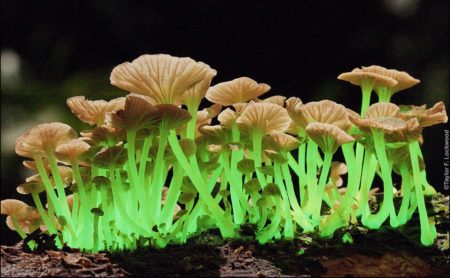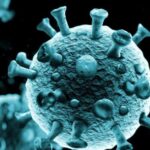February 21, 2020 – Welcome Caleb Danziger, a tech blogger and co-owner of The Byte Beat. This is his first posting to 21st Century Tech Blog, describing how mushrooms can provide us with a way to clean up environmental pollution both on land and sea. You can email Caleb at caleb@thebytebeat.com or follow him on Twitter @theotherdanzig.
The environment is in trouble, and most of the problem is caused by humanity. Our oceans, a primary source of oxygen, food, and medicine, are polluted with plastic and other waste materials. The one bit of good news is that people now want to do something about it. The same technological progress that polluted our waters in the first place has the potential to help us save them.
Some solutions aren’t even in the realm of high tech or waiting for some future invention or discovery. In fact, with a little help from us, we can get nature to clean up polluted water coming from an unlikely source: mushrooms.
The technical term for what mushrooms can do is mycoremediation.
1. What Is It?
Mycoremediation is an experimental bioremediation technique that utilizes mushrooms to clean up water pollution. In this process, the natural enzymes in mushrooms are used to degrade foreign matter. They break down pollutants and turn them into products like fertilizer.
The mushrooms that we see above ground aren’t involved in this process. It is the mycelium network of filaments underground, called hyphae, that secrete the enzymes that turn toxic matter into nontoxic soil.
2. How Mycoremediation Is Being Used
The pollution in our oceans is already causing extreme problems, from animal deaths to the spread of diseases. Even humans are indirectly consuming plastic, mercury, and lead dissolved that has washed into the ocean from human activity on ships or on land. DEHP, chemicals found in microplastics, are known to cause asthma and reproductive problems.
Researchers at Ocean Blue, a nonprofit organization working to conserve the oceans has been looking at the properties of mushrooms and fungi since 2014 as an ocean remediation solution. They are not alone. Some municipalities have started researching mushroom use for environmental cleanup and Northern California has been using them to clean ash from streams and waterways following 2017 wildfires.
3. Mycoremediation in the Future
Researchers at Utrecht University in The Netherlands have discovered 50 more species of fungi that can be used to clean polluted sites. Their current task is to find the specific conditions for each of these species to perform optimally.
There are two main roadblocks, however, to mycoremediation as an environmental cleanup solution. The first is time. Mycoremediation isn’t fast. It’s a long-term solution with the process taking days, months or even years depending on the extent of the damage. Bioremediation may not fit in with the timetables that those who hire cleanup operators demand.
The other problem is the cost. Developing mycoremediation on a large scale needs funding that many aren’t willing to pay because of the slow process. If the byproduct of cleaning water can have value, then perhaps investors will be more willing to spend money on the process. That’s why Ocean Blue is making the effort to try and get a return on investment from the byproducts of mycoremediation.
4. What We Can Do Now
There isn’t a whole lot the average person can do to boost mycoremediation except for doing volunteer work. Sadly, there isn’t a lot we can do about the plastics already in our oceans. What we can do, however, is prevent more pollution from entering the environment and making an already bad situation much worse. Limiting plastic and other human-generated environmental pollutants is a key step in the process while we let mycoremediation do its thing.















